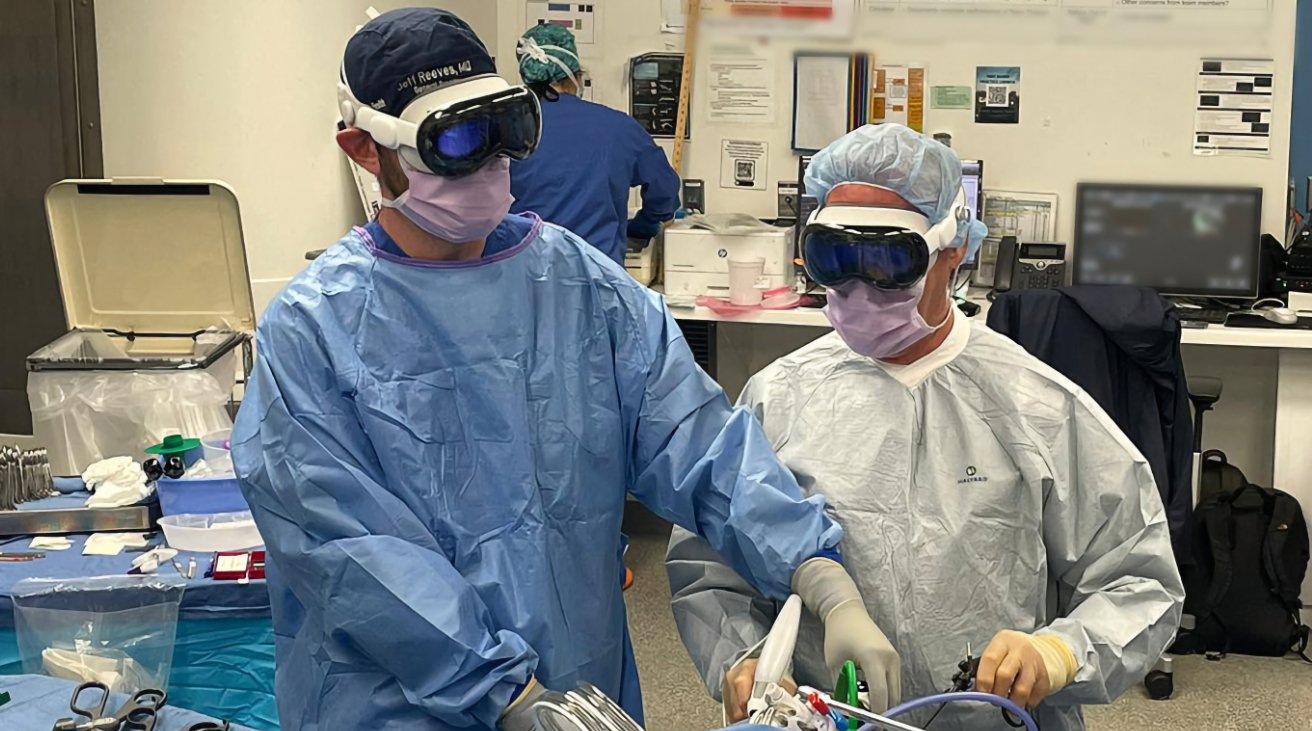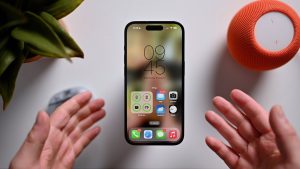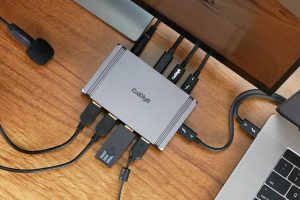
Surgery underway using Apple Vision Pro (Source: UC San Diego Health)

Apple Vision Pro is being praised by surgeons for its high resolution images and its ergonomics, which may even save them injuries that now lead to early retirement.
Since its launch in February 2024, the Apple Vision Pro has already been used by surgeons in the US, and across the globe. Now the first surgeon to ever perform a robotically assisted gastric-bypass operation, is now a proponent of the Apple Vision Pro both for patients and surgeons.
Santiago Horgan heads the Center for the Future of Surgery at UC San Diego, and told Time magazine that the Apple Vision Pro is more significant than the robot tool he used in 2000. “This is the same level of revolution, but will impact more lives because of the access to it,” he says.
Horgan has previously tried Microsoft’s HoloLens and Google Glass, but says their image resolution was not high enough. Apple Vision Pro is and in September 2023, with a pre-release test headset, he and colleagues performed a paraesophageal hernia operation wearing it.
“We are all blown away: it was better than we even expected,” says Horgan. “I’m usually turning around and stopping the operation to see a CT scan; looking to see what happened with the endoscopy [another small camera that provides a closer look at organs]; looking at the monitor for the heart rate.”
Instead, with Apple Vision Pro, Horgan can concentrate on the operation uninterrupted. That’s better for the patient because they are on the operating table for less time, but it also has benefits for the surgeon.
Reportedly, 20% of surgeons polled in a 2022 study said that they would consider early retirement because of the discomfort of operations. Having to operate on a patient while looking up at a screen and taking in information from around the operating room even causes surgeons pain.
If it continues keeping experienced surgeons working, the price of the headset is more than worth it. But Christopher Longhurst, Horgan’s colleague and chief clinical and innovation officer at UC San Diego Health, says price isn’t the issue it would be for consumers.
“The monitors in the operating room are probably $20,000 to $30,000,” he said. “So $3,500 for a headset is like budget dust in the healthcare setting.”
The future of Apple Vision Pro in surgery
Longhurst is also working with the Apple Vision Pro on 3D radiology imaging. For this and different medical applications, Longhurst says his team believes that the Apple Vision Pro “is going to be the standard of care in the next years to come, in operating rooms all over the world.”
Miguel Burch, head of the general surgery division at the Cedars-Sinai Medical Center in Los Angeles, says that part of this is down to how Apple Vision Pro is a single device instead of a series of them.
“If everything we wanted to use in augmented reality is proprietarily attached to a different device, then we have 10 headsets and 15 different monitors,” says Burch. “But with [Apple Vision Pro], you can use it with anything that has a video feed.”
Burch also says he personally has sustained three unspecified injuries from performing minimally-invasive surgeries before the existence of the Apple Vision Pro. He calls the headset “ergonomically a solution to the silent problem of surgeons having to end their careers earlier.”
Separately, a UK surgical assistant switched from HoloLens 2 to the Apple Vision Pro in March 2024, and described it as a “gamechanger.”




